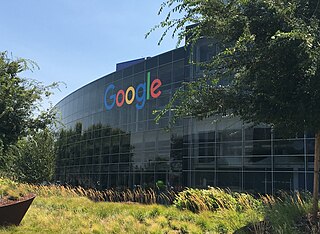The New York Sun is an American online newspaper published in Manhattan. From 2009 to 2021 it operated as an online-only publisher of political and economic opinion pieces, as well as occasional arts content. Dovid Efune acquired the paper in November 2021, and it began full-time online publication in 2022.

The Hartford Courant is the largest daily newspaper in the U.S. state of Connecticut, and is advertised as the oldest continuously published newspaper in the United States. A morning newspaper serving most of the state north of New Haven and east of Waterbury, its headquarters on Broad Street in Hartford, Connecticut was a short walk from the state capitol. It reports regional news with a chain of bureaus in smaller cities and a series of local editions. It also operates CTNow, a free local weekly newspaper and website.

The yellow pages are telephone directories of businesses, organized by category rather than alphabetically by business name, in which advertising is sold. The directories were originally printed on yellow paper, as opposed to white pages for non-commercial listings. The traditional term "yellow pages" is now also applied to online directories of businesses.

Google LLC is an American multinational corporation and technology company focusing on online advertising, search engine technology, cloud computing, computer software, quantum computing, e-commerce, consumer electronics, and artificial intelligence (AI). It has been referred to as "the most powerful company in the world" and as one of the world's most valuable brands due to its market dominance, data collection, and technological advantages in the field of AI. Google's parent company Alphabet Inc. is one of the five Big Tech companies, alongside Amazon, Apple, Meta, and Microsoft.

Turnitin is an Internet-based similarity detection service run by the American company Turnitin, LLC, a subsidiary of Advance Publications.
In online marketing, a landing page, sometimes known as a "lead capture page", "single property page", "static page", "squeeze page" or a "destination page", is a single web page that appears in response to clicking on a search engine optimized search result, marketing promotion, marketing email or an online advertisement. The landing page will usually display directed sales copy that is a logical extension of the advertisement, search result or link. Landing pages are used for lead generation. The actions that a visitor takes on a landing page are what determine an advertiser's conversion rate. A landing page may be part of a microsite or a single page within an organization's main web site.

TimothyShiou-Ming Wu is a Taiwanese-American legal scholar who served as Special Assistant to the President for Technology and Competition Policy at the United States from 2021 to 2023. He is also a professor of law at Columbia University and a contributing opinion writer for The New York Times. He is known legally and academically for significant contributions to antitrust and communications policy, coining the phrase "network neutrality" in his 2003 law journal article, Network Neutrality, Broadband Discrimination. In the late 2010s, Wu was a leading advocate for an antitrust lawsuit directed at the breakup of Facebook.
An essay mill is a business that allows customers to commission an original piece of writing on a particular topic so that they may commit academic fraud. Customers provide the company with specific information about the essay, including number of pages, general topic, and a time frame to work within. The customer is charged a certain amount per page. A similar concept is the essay bank, a company from which students can purchase prewritten but less expensive essays on various topics, at higher risk of being caught. Both forms of business are under varying legal restraints in some jurisdictions.

Thomas P. Novak is the Denit Trust Distinguished Scholar and Professor of Marketing at The George Washington University School of Business, where he co-directs the Center for the Connected Consumer and the Connected Consumer Panel. Professor Novak’s research since 1993 has focused exclusively on consumer behavior in online environments and digital marketing. His current research interests deal with consumer motivations for using social media, the impact of the social web on consumer well-being, and post-social media marketing including the gamification of marketing, the Internet of Things, and the connected consumer.

Brian Wansink is an American former professor and researcher who worked in consumer behavior and marketing research. He was the executive director of the USDA's Center for Nutrition Policy and Promotion (CNPP) from 2007 to 2009 and held the John S. Dyson Endowed Chair in the Applied Economics and Management Department at Cornell University, where he directed the Cornell Food and Brand Lab.

Silicon Wadi is a region in Israel that serves as one of the global centres for advanced technology. It spans the Israeli coastal plain, and is cited as among the reasons why the country has become known as the world's "start-up nation". The highest concentrations of high-tech industry in the region can be found around Tel Aviv, including small clusters around the cities of Raʽanana, Petah Tikva, Herzliya, Netanya, Rehovot, and Ness Ziona. Additional clusters of high-tech industry can be found in Haifa and Caesarea. More recent high-tech establishments have been raised in cities such as Jerusalem and Beersheba, in towns such as Yokneam Illit, and in Airport City.

Agoda.com is an online travel agency catering primarily to consumers in the Asia-Pacific region, with headquarters in Singapore and operations in Bangkok, Thailand. Agoda facilitates reservations for lodging, flights, ground transportation, and activities. It is a subsidiary of Booking Holdings.

Plagiarism is the representation of another person's language, thoughts, ideas, or expressions as one's own original work. Although precise definitions vary depending on the institution, in many countries and cultures plagiarism is considered a violation of academic integrity and journalistic ethics, as well as social norms around learning, teaching, research, fairness, respect, and responsibility. As such, a person or entity that is determined to have committed plagiarism is often subject to various punishments or sanctions, such as suspension, expulsion from school or work, fines, imprisonment, and other penalties.

Kampyle is a software and website feedback analytics company founded in 2007 and based in Ramat Gan, Israel. Kampyle's feedback service is used to improve a company's ability to understand their website users and customer analytics. Kampyle was acquired by Medallia in October 2016.

Google Surveys was a business tool developed by Google that aimed to simplify personalized market research. Released in 2012, Google announced in September 2022 that it would cease operations on November 1, 2022. This product was designed by Google as an alternative to internet pay walls for websites that publish content. The program was launched by several online publishers such as Pandora, AdWeek, and the New York Daily News. Google Surveys was part of the Google Marketing Platform.
Unicheck is a cloud-based plagiarism detection software that finds similarities, citations and references in texts.
Google for Startups is a startup program launched by Google in 2011. It consists of over 50 co-working spaces and accelerators in 125 countries, and provides hands-on lessons for aspiring entrepreneurs.
Utpal Dholakia is an Indian American researcher and professor. He is the George R. Brown Professor of Marketing at the Jones Graduate School of Business, Rice University, and the founder of marketing insights consultancy, Empyrean Insights.

.Tech is a generic top-level domain (gTLD) of the Domain Name System (DNS) used in the Internet. The name is truncated from technology.













